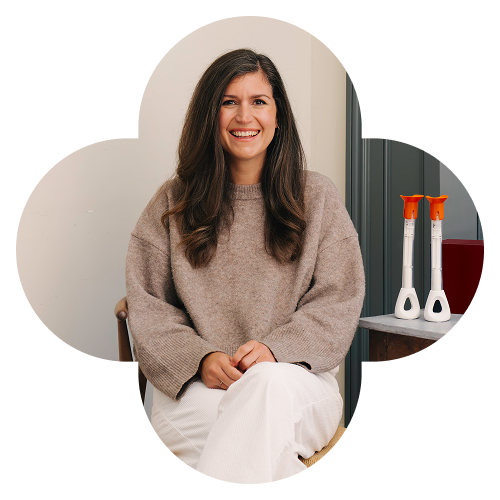For some people, using donor eggs can be a necessary component in creating their family and there are a few different routes you can take – ranging from egg banks to known donors. Here you’ll find our comprehensive guide for anyone considering using donor eggs.
How are donors approved?
Fertility clinics and egg banks have a screening process for egg donor applicants which requires them to undergo medical investigations and a fertility health assessment to ensure they are suitable to donate. They usually will also have to fulfil additional criteria, such as:
- Be 18–35 years old
- Have two fully functional ovaries
- Have an ovarian reserve within a normal range
- Be a non-smoker
- Have a healthy BMI (between 19 and 30)
- Undergo genetic screening for potentially heritable conditions and screening for sexually transmitted diseases
The HFEA requires that all donors also complete a counselling session prior to approval. Once the donor is approved, they are either booked in for an egg freezing cycle or they are put on a waiting list to be matched with a recipient.
Where can you find donor eggs?
It’s important to ensure you use an egg donor who has had all relevant checks and been approved by a licensed UK fertility clinic. This will ensure that all of the necessary health and quality checks have been performed prior to use. When selecting a donor, you can access details about their age, ethnicity, physical characteristics (like height, weight, eye and hair colour) and medical history. You could:
1. Choose from a donor list within your clinic
Some clinics have their own donor banks where you can select your donor. You may have an appointment with a donation coordinator that can help you match your own characteristics to a donor or choose from a list. It’s important to note that some clinics have long waiting lists, so check with your clinic before you proceed.
2. Import donor eggs from an egg bank overseas
It’s possible to purchase donor eggs from accredited donor banks abroad. They often have a wide selection of donors with detailed online profiles. Confirm with your clinic that they can receive samples from the donor bank of your choice before you purchase eggs. Donor banks need to be licensed or accredited by a relevant authority and they need to meet similar requirements set out by UK regulators. This is to ensure that there are processes in place to maintain the safety of samples in storage and shipment and minimise any risk to you.
3. Use a known donor
A known donor could be a friend or family member. This person would be subject to the same screening and tests as clinic donors (i.e. counselling, health checks and genetic screening). By law, the person donating the eggs will not be the legal parent of any resulting children. Talk to the experts at your clinic if you wish to proceed with a known donor.
Important additional information
Patients using donor eggs in treatment must attend counselling and will be informed of the UK’s legislation on the identity of donors and will need to complete the appropriate consents. Since 2005, donors in the UK are no longer anonymous. Children conceived using donated eggs are allowed to ask the HFEA for information about the donor when they reach the age of 18. That will enable them to find out who the donor is and get in touch with them if they choose. The donor will have no financial or legal obligation to any child born from a donation.

Share:
Using donor sperm
Using donor sperm